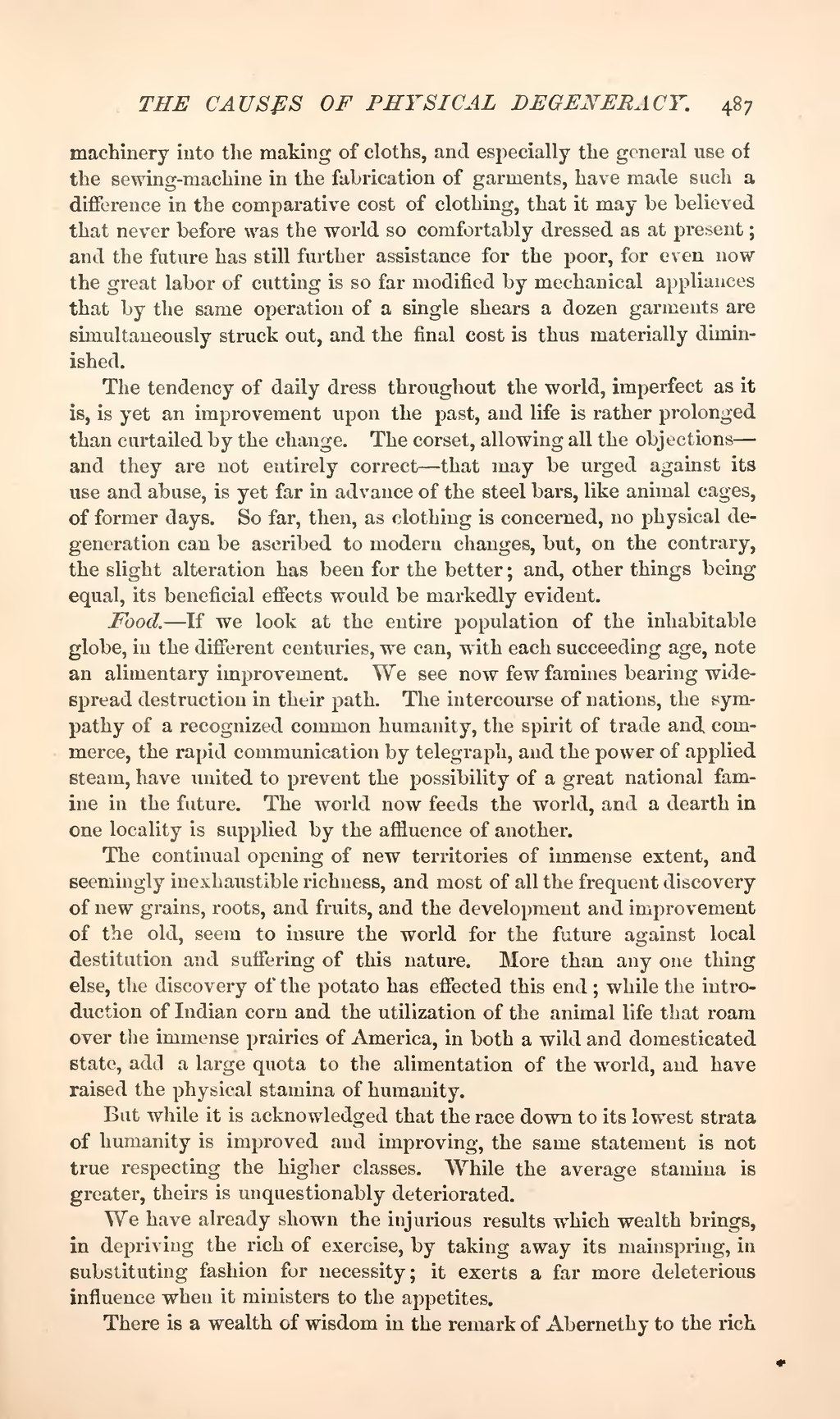machinery into the making of cloths, and especially the general use of the sewing-machine in the fabrication of garments, have made such a difference in the comparative cost of clothing, that it may be believed that never before was the world so comfortably dressed as at present; and the future has still further assistance for the poor, for even now the great labor of cutting is so far modified by mechanical appliances that by the same operation of a single shears a dozen garments are simultaneously struck out, and the final cost is thus materially diminished.
The tendency of daily dress throughout the world, imperfect as it is, is yet an improvement upon the past, and life is rather prolonged than curtailed by the change. The corset, allowing all the objections—and they are not entirely correct—that may be urged against its use and abuse, is yet far in advance of the steel bars, like animal cages, of former days. So far, then, as clothing is concerned, no physical degeneration can be ascribed to modern changes, but, on the contrary, the slight alteration has been for the better; and, other things being equal, its beneficial effects would be markedly evident.
Food.—If we look at the entire population of the inhabitable globe, in the different centuries, we can, with each succeeding age, note an alimentary improvement. We see now few famines bearing wide-spread destruction in their path. The intercourse of nations, the sympathy of a recognized common humanity, the spirit of trade and commerce, the rapid communication by telegraph, and the power of applied steam, have united to prevent the possibility of a great national famine in the future. The world now feeds the world, and a dearth in one locality is supplied by the affluence of another.
The continual opening of new territories of immense extent, and seemingly inexhaustible richness, and most of all the frequent discovery of new grains, roots, and fruits, and the development and improvement of the old, seem to insure the world for the future against local destitution and suffering of this nature. More than any one thing else, the discovery of the potato has effected this end; while the introduction of Indian corn and the utilization of the animal life that roam over the immense prairies of America, in both a wild and domesticated state, add a large quota to the alimentation of the world, and have raised the physical stamina of humanity.
But while it is acknowledged that the race down to its lowest strata of humanity is improved and improving, the same statement is not true respecting the higher classes. While the average stamina is greater, theirs is unquestionably deteriorated.
We have already shown the injurious results which wealth brings, in depriving the rich of exercise, by taking away its mainspring, in substituting fashion for necessity; it exerts a far more deleterious influence when it ministers to the appetites.
There is a wealth of wisdom in the remark of Abernethy to the rich

